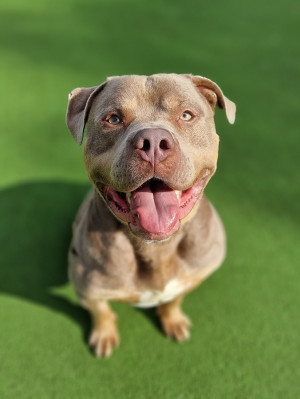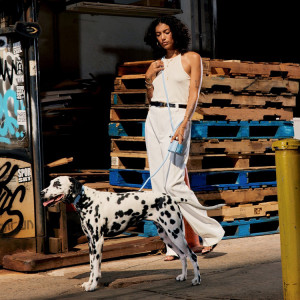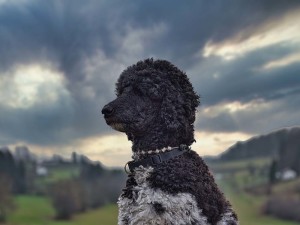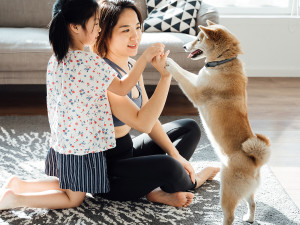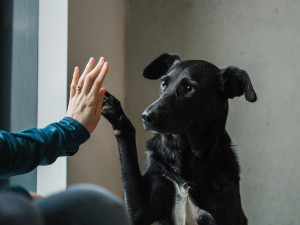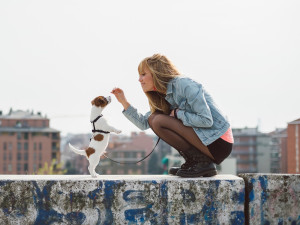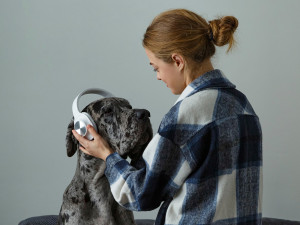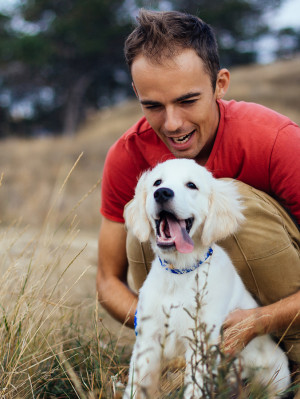8 Questions to Ask Yourself When Choosing a Dog Breed
Find out which dog breed is right for your lifestyle
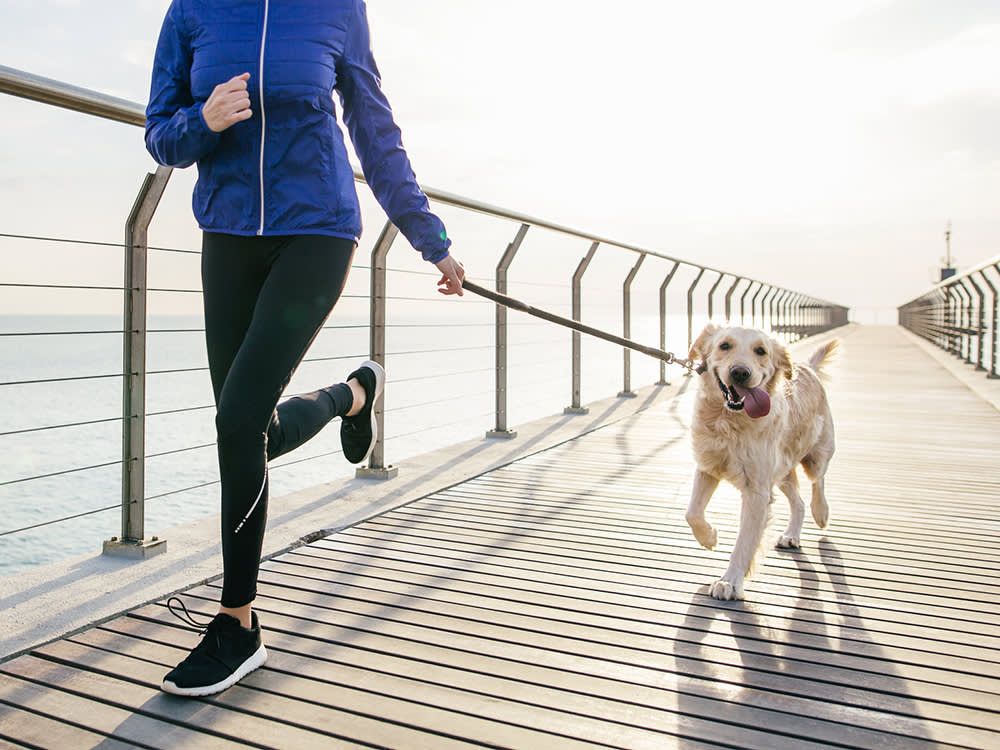
Share Article
Here’s the thing about looking for a dog: it’s easy to fall in love immediately with almost any one you see. Whether browsing breeder websites or paying a visit to Batterseaopens in new tab, all the dogs you encounter will be giving you ‘The Look’ and it will be hard to resist them. This is why it’s so important to put a lot of thought into what type of dog suits your lifestyle before you come face-to-face with one. Even though you’ll adore your new addition no matter what, some dogs will fit into your life better than others.
To help you think through your decision, we pulled together a few questions for self-reflection. Then we asked Dr Annette Louviere, a vet at pet genetics company Wisdom Panel, to chime in with insights.
Eight questions to ask yourself
1. What’s your climate?
Dogs are adaptable, but that doesn’t mean they thrive in all environments. Temperate climates, like we have in the UK, work well for most pups. But if the weather gets too cold or too hot, problems can arise. At a minimum, some dogs will be uncomfortable – and in more serious instances, they could be at risk for health issues.
Dr Louviere explains more: “Any brachycephalic – or short-snouted – dog will have trouble cooling off in hot, humid environments, so they should be closely watched when playing outside. This issue can be compounded in dogs with short snouts and long coats, like the Shih Tzu. Additionally, breeds from cold weather climates, such as the Alaskan Malamute and Norwegian Elkhound, or mixed breed dogs with thick dense coats, tend to have a low tolerance for the heat.
“On the other end of the spectrum are dogs that have a harder time in cold weather. Those with short fur – or even no fur – may have difficulty keeping warm. These pups will benefit from wearing layers, much like we do. Similarly, dogs from warmer climates, like the Chihuahua, or those low to the ground, may not enjoy the snow as much as other breeds. And unfortunately for our short-snouted friends, they may also struggle to breathe when the weather gets too cold.”
2. How active are you? (Be honest)
Are you a runner who wants an active dog because you’re looking for a jogging partner? Or do you want an active dog because you’re hoping they will turn you into a runner? Generally speaking, the former has a better success rate than the latter. We’re not saying dogs can’t help you be your best self, but it could be a risky gamble, because it’s really important that you can provide any dog with enough exercise and enrichment to meet their energy level. If you don’t, your dog may turn to destructive behaviour, which will not work out well for you, your dog or your favourite pair of shoes. But if you’re truly an active person with plenty of time to devote to your pup, herding and sporting dogs could be a great fit.
If you like to spend your free time at home streaming shows or reading, look for a pup who’s happiest when they get to be curled up with you. Dr Louviere says that Poodles, Italian Greyhounds and Papillons like to be attached to their human like velcro. But any lap dog that likes to snuggle will appreciate the introverted tendencies in their human.
Equally, if you’re a runner who likes to go solo, plenty of dogs are happy to chill on the sofa while you’re out for a jog. According to Dr Louviere, Basset Hounds, Bernese Mountain Dogs, Shiba Inus and Shar Pei enjoy ‘me time’ at home.
3. When nature calls, do you answer?
If you’re an avid rambler or camper and looking for a dog to share outdoor adventures with, a tiny lap dog will probably have trouble keeping up. Better bets are sporting dogs, like Labs and Pointers, or herding dogs like Australian Shepherds or Border Collies.
4. Are you looking for a travel buddy?
If road trips are your thing, you have lots of options. But if you plan to fly and want your dog with you, size will be important. Check out which airlines allow pets to travel with you in the cabinopens in new tab, and make sure you get a dog who will fit under the seat.
5. Does anyone in the home have allergies?
If you or someone in your house gets a runny nose or itchy eyes when dogs are around, you might think that a hypoallergenic dog is your best choice. However, here’s the thing: there’s actually no such thing as a truly hypoallergenic dog. That said, several breeds are low-shedding, and those tend to work best for people who suffer from pet allergies. These include Poodles, Maltese, Bichon Frise and Schnauzers (to name a few).
Wondering if a Doodle will do the trick? Maybe. It depends on which genes have been passed on to the pup. If you’re working with a breeder, they can use genetic testing to determine the dogs’ likelihood of shedding, so you’ll know that information before you decide to buy.
6. How do you feel about trips to the doggie salon?
Long-haired dogs tend to be the ones who require regular trips to the groomer for trims. That takes time and money, so make sure that’s something you’re on board with that fits in your budget. If low-maintenance is more your style, short-coated dogs typically require less grooming.
7. What’s your housing situation?
If you own your house (congrats!), you get to decide what kind of dog to bring home. But if you rent, your landlord may have a say. Check your rental agreement to see if there are limitations on size. If you live in a flat and share walls with neighbours (ones you don’t want to hate you), a dog who barks a lot could be a problem. Dogs will bark for various reasons, and you won’t always know in advance if you have a talkative one on your hands, but some breeds are known to bark more than others.
“Beagles, Papillons, Basset Hounds, Rat Terriers and Siberian Huskies are a few more vocal breeds,” says Dr Louviere. “As far as breed groups, Terriers and Hounds are known for being most vocal. That said, there are things pet parents can do to reduce the tendency to bark. So if you get a dog who barks a lot, talk to a trainer or vet for some tips.”
8. Do you have – or plan to have – kids?
This is a biggie because you may need to look pretty far down the road to answer this one. If kids are going to be part of the equation at any point, Dr Louviere has some advice.
“If you have young kids, toy breeds may not be the best fit,“ she says. “Not only can some be nippy, but due to their small size, they tend to be more fragile and can’t withstand any rough handling from kids. On the other hand, giant breeds can be a problem for the opposite reason. Some may be gentle giants, but they could accidentally knock over and harm very young children.
“Herding breeds can also be tricky with young kids. They may try to herd kids like sheep (which involves nipping), and not all herding dogs like to be handled as much as other breed groups. Herding dogs also require a lot of exercise and mental stimulation, and it can be hard for busy parents to meet those needs. However, if you have older kids, they may be a good match for a herding dog’s endless energy.
“Other dogs that could be challenging with little ones are the spitz breeds, such as Chow Chows, Akitas and Siberian Huskies. They have the tendency to be stubborn and independent, and they don’t always tolerate the unpredictability of a young child.”
If you want a dog who will be your kid’s BFF, family favourites like Labradors, Golden Retrievers and Beagles – and mixes that include those breeds – are a great choice.

Kate Sheofsky
Kate Sheofsky hails from San Francisco, where she developed a love of writing, Giants baseball, and houses she can’t afford. She currently lives in Portland, OR, and works as a freelance writer and content strategist. When not typing away on her laptop, she enjoys tooling around the city with her two rescue pups searching for tasty food and sunny patios.
Related articles
![mom and daughter playing with puppy]()
How to Introduce Your New Dog to Your Kids
They’ll always remember their first childhood pet – this intro is just the beginning
![A black dog holding its paw up to a woman's hand.]()
15 Amazing Facts About Dogs You Might Not Know
Boost your dog smarts with these cool facts
![Young blonde woman with a Jack Russell puppy during spring in the city.]()
Dog Training Treats They Will Sit, Stay – You Name It – For
A behaviourist reveals the most mouth-watering treats for training your pup
![Young woman in checkered shirt putting modern wireless headphones on loyal Great Dane dog against gray wall at home.]()
6 Best Dog Earmuffs to Protect Your Pup From Loud Noises
Dogs’ hearing is way more sensitive than ours. These top-rated earmuffs can help drown out scary sounds such as loud fireworks
![Young Man With Retriever Puppy]()
When Should You Spay or Neuter Your Dog?
The research is confusing – here are some guidelines

